#alex after lars von trier gets banned from cannes for saying a joke about nazis: dad what the fuck
Photo

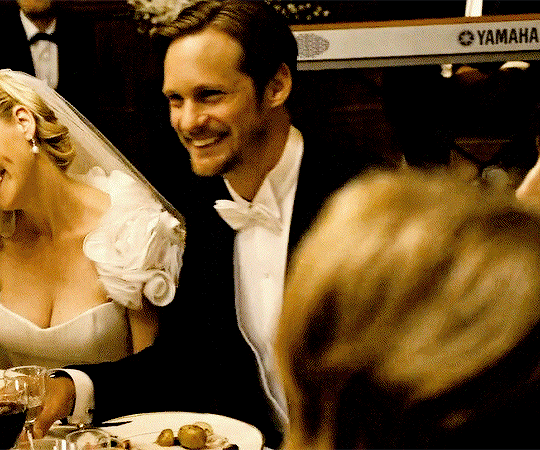
‘I'm trying not to be a dad on the set [of MELANCHOLIA (2011), dir. Lars von Trier)], but it's hard. As soon as Alexander's character says "dad" I hear myself answer "yes",’ [Stellan] then said with a laugh. (x)
#skarsgardedit#askarsedit#alexander skarsgard#alexander skarsgård#stellan skarsgard#stellan skarsgård#melancholia#lars von trier#who: stellan skarsgård#who: alexander skarsgård#movie: melancholia (2011)#*#papa skarsgård being a papa#man good for alex to have been elsewhere when the cannes controversy blew up for the promotion of this movie#when lars von trier ran his mouth during the press conference that i still can't watch without hiding my face behind my hands#while stellan was like 'i spent a fuckin week defending him at cannes' lmao how tiresome was that#stellan at cannes: son why aren't you here to promote the movie i thought we could do it together :(#alex: don't have too much fun without me :(#alex after lars von trier gets banned from cannes for saying a joke about nazis: dad what the fuck#stellan: anyway how's true blood :)#alex: dad what happened#stellan: are you having fun with your friends :)
246 notes
·
View notes
Text
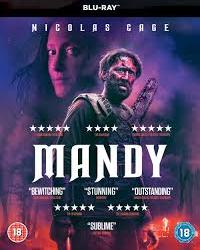
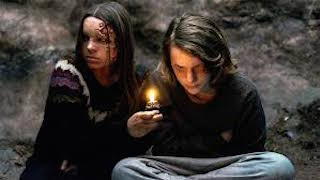
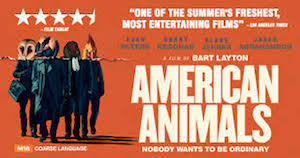
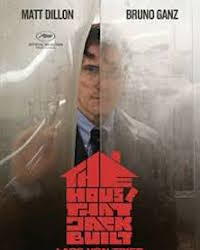

The Wrap, Part II: Return of the Curse of the Creature’s Ghost!
Film Reviews from the 51st Annual Sitges Fantasy/Horror Film Festival
by
Lucas A Cavazos
It would be of utmost denial to oneself to not take part in the occasional puff of marijuana and/or odd glass or two of red wine whilst shuffling about Sitges during this type of festival. I tell you, in this gayest of cities (and yes, I mean that in both senses of the word), nothing says loving like soaking up sun and guts while having the right side of your brain open. To quote Henry Miller…”The aim of life is to live, and to live means to be aware, joyously, drunkenly, serenely, divinely aware.”
And it is in that vein, I present to you the latest film starring Nicolas Cage, Mandy ###-1/2…Could it be that Nicolas Cage might actually have something interesting to offer now that he’s well past 50 and ready to go beyond simple nut job roles and wannabe-buff, action hits and flops? Last year, this festival premiered the currently in-run and VOD film called Mom and Dad with Selma Blair, and if that was a thing of fun and delight, which is was, this film is much more darkly mirrored and rife with psychedelic imagery, and it must be discussed. To note, it does contain ye olde, ubiquitous screaming-whilst-having-a-psychotic-fit Cage scene, doubt ye not! Set in turn of the decade 80s, Red (Cage) and Mandy (Andrea Riseborough) have removed themselves from the majority of society and live a life of slight isolation, that is until one day, Mandy is abducted by some occult-like sect with grave intentions. Linus Roach (Priest) plays Jeremiah Sands, a man who can call forth demons and demonic creatures, and when psychedelia meets rancour, flames go up and and as they do, someone in them, as well. This is where the film turns into a contemplative narrative tale on revenge and turmoil, highlighted by a tinge of hallucinogens and wasp venom, and I cannot begin to tell you how eerily creepy it is to see Linus Roach after so many years in a role like this that sends chills down your spine in ways that create sheer panic and disgust. Watching Cage take revenge is a joy and wonder, and it should be noted that the film won two of the Sitges 51st Official Selection Awards for Best Director, which went to Panos Cosmatos and Best Actress going to Andrea Riseborough, who also comes up a bit later down below. A piece of rogue psychedelic modern art on celluloid if ever there was one, tinges of Wes Craven, Heavy Metal cartoon imagery and sleep paralysis demons make this Nic Cage vehicle one of the best things he has done in simply years.
Making my way over to The Retiro in the heart of bustling Sitges to screen the noir-like film The Dark ###, I realised that I was late and upon arrival, I was quickly ushered upstairs and had to make do with a single chair propped up next to an upstairs balustrade. The Dark is an eerie piece that preys on the power of the unknown to scare the viewer into wanting to know more about its strange characters…and then the film reveals those secrets in flashback. Despite its title, there is very little in relation to darkness other than the tone of the film and its narrative of teen spirit gone horribly awry. In a former entry, I spoke of how a screened premiere entitled Zoo had encroached upon fresh zombie territory, and until recently as just over a decade ago, zombie cinema was a mostly contained affair, and reserved to a select grouping of films annually. That all changed with the mid-noughties and this latest entry into its subject matter baits us with unexplained tidbits, starting when a one Josef Hofer (Karl Markovics), described as armed and dangerous, makes his way to a rather haunting locale, where death finds him in the form of Mina, perma-resident of this cursed abode in Devil’s Den, a forestal area with a history of hauntings and Mina is that person/monster haunting those very woods. But then she discovers Alex, a blind and also-scarred teen who had been Hofer’s captive, and together the two make off for a disturbing adventure, which borders on heartfelt while also sadistic. If anything, this piece certainly toys with emotions and good cinema ought to do just that.
The Sitges Fantasy/Horror Film Fest is divided into many distinct sections, such as the main Official Selections, Noves Visions,which promotes newer filmmakers and diverse subject matter, Melies Feature and Short Film sections, Asian Focus, Animated Fare, The Orbita promoting mixed big budget and indie fare, Fanastic Discovery Features promoting obscure (and often deeper) cinema, the B and Z-grade fare of the Midnight X-Treme selections, as well as, the Critics Jury Selection. All of that to say that there is nary a specific genre within the fantasy film/horror movie genres that is NOT touched on by this film festival. Winner of the Orbita Award for Best Picture went to the US studio outfit entitled American Animals ###-1/2 and what an astounding effort it provides its audience into a peek at the rather modern mindset of the ageing millennial. Telling a 2004 real-life story by British director Bart Layton, he of the haunting 2012 film The Imposter, this 2018 effort documents how four white youths from good, hardworking families failed to fully realise a masterminded effort to steal one of, if not, the world’s most valuable book. The multi-volume Audubon Society’s Birds of America, not to mention Darwin’s first edition copy of On the Origin of Species were just two of the books to be included in a heist that Transylvania University students Spencer Reinhard and Warren Lipka (played to perfection by Barry Keoghan and Evan Peters) foolishly decided to rob from the special collections library department. To say that the subject matter is mid-level at best might be a tad harsh but only just so; that said, the way Layton maps out the mental state of these middle-to-upper middle class boys should give all of us a hint as to where these boys, and millions like them, are coming from. The plan of a heist is bred with the idea that their spoiled lives have hindered their true creative identities, and so to tell the story, the director secured interviews with the actual perpetrators and spliced that with top grade talent re-enacting the actual events. The film cannot be heralded as a thing of wonder, as it truly details the dumbest snafu of a heist ever on American soil. But what it succeeds in showing is that insecurity, lack of identity, and seeds of doubt are rife amongst today’s young adults, and if we are not fomenting stronger individuals as siblings, educators, parents, et al…we will continue to create these spoiled races of highly non-autonomous individuals. Give them some tough love, for goodness sake. Worthy of a view for any parent or educator.
AND NOW FOR SOMETHING COMPLETELY DIFFERENT…Lars Von Trier, he of the Dogme 95 cinema movement and so many odd, jarring and sometimes good celluloid pieces…see Celebration and this film as examples please…he of the “understanding Hitler, I’m a Nazi” joke he pulled a few years back at Cannes, which then had him banned for half a decade, premiered his latest work last week at Sitges. It a doozy of a film that garnered some decent attention and a European and Spanish distributor, for sure. It’s been a hot minute since we’ve seen Matt Dillon on the big screen, and the brief time with Uma Thurman at the film’s beginning is a dark scene of beauty…and then not. Here’s the thing, as always we are dealing with the tortured mindset of a Scandinavian director who seethes out his demons onto celluloid, but that alone does not make it exceptional art, although I truly believe he thinks it is. In turn, I truly believe that von Trier is quite likely a mitigated sociopath. That said, while there is a bit of reverential awe to his masterful ways of movie manipulation, it is his use of dark comedy that sets this film apart from other recent fare he has brought us. Matt Dillon plays the titular character and while amusing at first, he soon grows languidly repetitive and chauvinistic, and while there are scenes of comedic brilliance, such as an OCD-related clean up job that leads to an incident with a policeman or the bang-down job he does trying to dispose of bodies in a freezer, it is impossible for this student and teacher of history to not associate the fact that we are watching a man, a DANISH man no less (do your research as to why I emphasise that, chirren) play out his darker inner recesses for our viewing interest, but it surely makes me aware that we are also likely dealing with his pathos. That’s what really makes The House That Jack Built ###-1/2 really scary.
Lastly this entry, Nancy ###-1/2 brings up the actress Andrea Riseborough again, and I would like to note that often at awards season and ceremonies, actors get rewarded for an individual work, which often plays testament to all the other work they’ve done in their field that year. As Riseborough won Best Actress at this year’s Sitges Fantasy/Horror Film Fest, I believe this piece was much more deserved than the aforementioned Mandy for that award. I also find it compelling that she as an actress chose to make two, back-to-back films about tortured women with their names as the movie titles. Nancy is a quasi-failed career woman tending to her mum who suffers from some neural disorder and who is unintentionally suffocating her daughter with complaints and stress…but when mum dies suddenly, what is Nancy to do but discover that she was likely abducted years earlier and soon begins to associate herself with a long lost child case never resolved that might fit her theory about herself, however strained it is. What ensues is a emotional tour de force involving the parents of the long missing child, played to award-level precision by J. Cameron Smith as Ellen and Steve Buscemi as her hubby Leo. When Nancy sets up an appointment to meet with them, they take a shining to her at once and while awaiting DNA results, take her in to stay with them, including with her cat to which Leo is allergic. As scenes go by, even though this might be more in order in an indie film fest rather than here at Sitges, you also understand that the fantastical elements lie in the mind of the titular woman, as well as, in director Christina Chloe’s softly brutal touch. A film meant for those who understand healing and suspension of (dis)belief, Nancy gives Andrea Riseborough a chance at becoming a celebrated actress to emulate.
#abitterlifethroughcinema#sitges film festival#mandymovie#TheDarkFilm#americananimals#the house that jack built#NancyFilm#matt dillon#steve buscemi#nicolas cage
1 note
·
View note